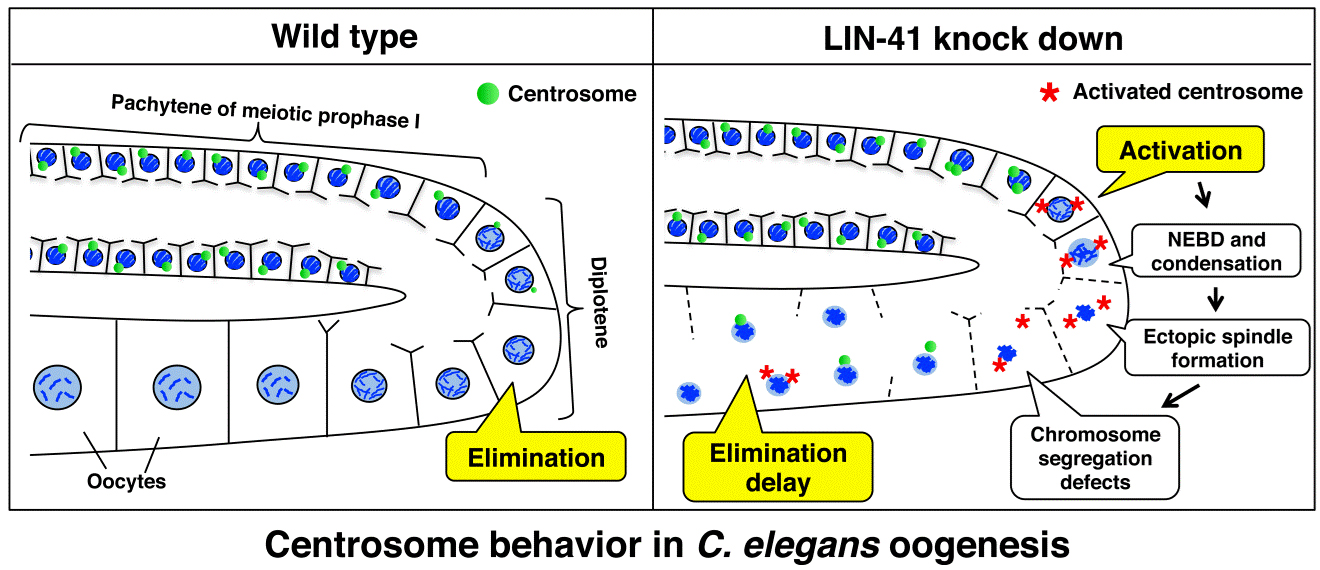LIN-41 regulates centrosome behavior during oogenesis
Department of Molecular Genetics Division of Centrosome Biology•Kitagawa Laboratory
LIN-41 inactivation leads to delayed centrosome elimination and abnormal chromosome behavior during female meiosis in Caenorhabditis elegans
Rieko Matsuura, Tomoko Ashikawa, Yuka Nozaki and Daiju Kitagawa
Molecular Biology of the Cell, 2016 DOI:10.1091/mbc.E15-10-0713
The centrosome serves as the major microtubule-organizing center (MTOC) in most animal cells. MTOC activity of centrosomes is crucial for proper chromosome segregation in mitosis and therefore for genome integrity. Centrosome dysfunction is known to be associated with a variety of diseases including cancer and infertility.
On the other hand, during oogenesis in most metazoans, maternal centrosomes are inactivated and thereafter eliminated during meiotic prophase I; hence, two successive meiotic cell divisions occur without centrosomes. The elimination of maternal centrosomes and the inheritance of paternal centrosomes to the progeny are crucial for maintaining the precise number of centrosomes in the fertilized zygote and thus for proper sexual reproduction. Despite being a conserved phenomenon in most metazoans, the means by which this centrosome behavior is controlled during female meiosis remain elusive.
The gonad of the Caenorhabditis elegans hermaphrodite is a well-suited model for analyzing the mechanisms governing centrosome behavior during oogenesis because all stages of oogenesis can be seen in a continuous fashion within a single gonad. In this study, we conducted a targeted RNAi screening in the Caenorhabditis elegans gonad to identify novel regulators of centrosome behavior during oogenesis. We screened ~500 genes known to be essential for embryo production and directly visualized GFP-γ-tubulin to monitor centrosome behavior at all stages of oogenesis. In the screening, we found that RNAi-mediated inactivation of 33 genes delayed the elimination of GFP-γ-tubulin at centrosomes during oogenesis, whereas inactivation of nine genes accelerated the process. Depletion of the TRIM-NHL protein LIN-41 led to a significant delay in centrosome elimination and to the separation and reactivation of centrosomes during oogenesis. Upon LIN-41 depletion, meiotic chromosomes were abnormally condensed and pulled toward one of the two spindle poles around late pachytene even though the spindle microtubules emanated from both centrosomes. Overall, our work provides new insights into the regulation of centrosome behavior to ensure critical meiotic events and the generation of intact oocytes.
This work was supported by JSPS KAKENHI (24687026 24113003), Takeda Science Foundation and the NAITO foundation.
















